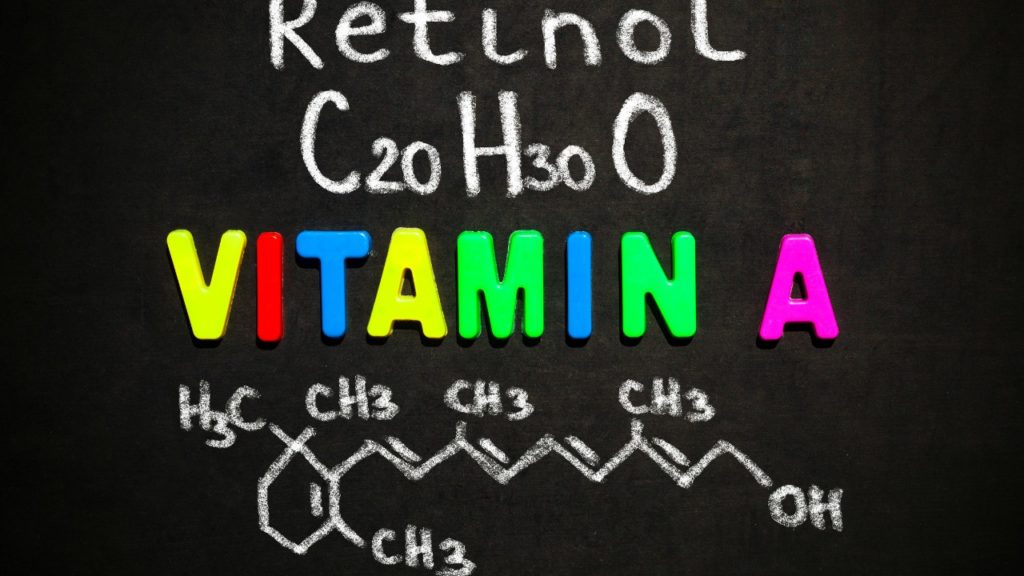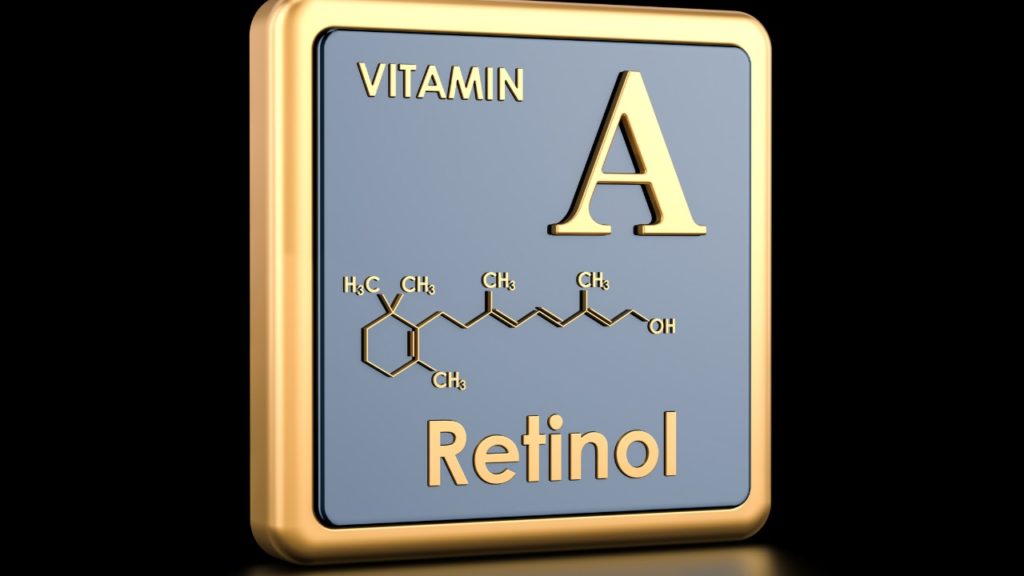I’ve looked at Macronutrients, the things we need in large amounts, such as Proteins, Carbohydrates and Fats. By large amounts I mean ingestion of foods measured in 10s of grams, for example a 100gram portion.
With Micronutrients we only need amounts ranging from micro to milligrams.
Vitamins are chemical compounds required in very small quantities, which are essential for normal metabolism and health. They are found widely distributed in food and are divided into two main groups:
Fat soluble vitamins: A, D, E and K
Water soluble vitamins: B complex and C
Everyone knows that the human body needs a certain amount of vitamins and minerals everyday to function properly and remain healthy. A well balanced diet can supply your body with the vitamins it needs, although problems and disorders can arise if your diet doesn’t supply your body with the vitamins it needs. The symptoms of vitamin deficiency will normally present themselves when the lack of vitamins is at an advanced level.
Those who don’t get enough of vitamins A, B1, and B2 for example, will always feel tired, along with a loss of appetite. Other symptoms include mental and emotional stress, chapped lips, and other annoying or painful habits.
The most common causes of deficiency include a poor diet, alcoholism, stress, a lack of vitamins, or medicine that interferes with your ingestion of vitamins. If you are always feeling tired or feeling a lack of energy, you are probably short on the vitamins that your body needs to have on a daily basis. If you visit your doctor and tell him the problem, he will probably recommend vitamins and supplements that will give you want you need. Whatever you do, you should never overdo it and try to catch up on what you’ve been missing – as this will do you more harm than good.
Even though you may be following a healthy diet, you’ll still need to take vitamins and supplements. No matter how healthy you eat, you should still use the right vitamins and supplements to give your body what it needs. Vitamins are a great back up source, as they will provide your body with the minerals and nutrients it needs in the event of your diet failing you.
Before or after every meal that you consume, you should take vitamins or supplements. If you have a deficiency in a certain vitamin or vitamins, you should make sure that you never miss taking the vitamin you need. Even though you may not realize it, being deficient in a vitamin can greatly damper your performance as well as the overall health of your body.
When you look for supplements, you should always look for those that contain vitamins B6, B12, D, E, and folic acid. Along with being considered dietary supplements, these well known vitamins will help to fight cancer and help your heart remain healthy. The combination of these vitamins will help your body to remain healthy, boost your immune system, and keep you feeling refreshed.
To remain healthy and keep your body operating as it should, you’ll need to invest in vitamins and supplements. You can find them online or at local nutrition stores, many of which won’t cost you much money at all. No matter what your age may be, you’ll need to ensure that you are eating the right foods and taking the right foods. Keep in mind that you should never replace food with vitamins, as they are more less meant to give you additional nutrients and minerals.
Anytime you aren’t able to eat the right food, you should always turn to vitamin supplements to give your body what it needs. Supplements and vitamins are one of the best investments you can make, as everyone needs vitamins in their body. Even though the costs may add up over time, it is more than worth it when you think about. For what you spend in vitamins and supplements, you’ll be keeping your body healthy – and preventing a deficiency in vitamins. Although vitamin deficiency is very common these days, it doesn’t have to be.
Vitamin A (Retinol)

Vitamin A was first discovered back in 1912, by a Polish biochemist named Casimir Funk. He came up with the word vitamine, which was later given the name vitamin. Funk was the first to discover vitamins as we know them today, although vitamin A was actually the first one discovered, hence the letter “A” in the title of the vitamin.
You’ll find this vitamin in such foods as cream, egg yolk, liver, fish oil, milk, cheese and butter.
Beta carotene, that the body can convert into vitamin A, is found in many fruits and vegetables, especially the red, orange and green coloured ones. The most important point to remember that consuming too much pure vitamin A can be toxic. It is essential not to exceed the recommended daily allowance for vitamin A. The actual recommended allowance of vitamin A varies depending on a person’s age, sex and other factors. While the actual amount of vitamin A consumed may be toxic if the recommended daily allowance is exceeded, there is a far higher limit to how much beta carotene can be consumed. Therefore it is advisable to concentrate on obtaining the greatest amount of beta carotene which the body can then convert to vitamin A, rather than consuming vast quantities of pure vitamin A rich foods.

Many people will remember being told that eating lots of carrots helps you to see in the dark and that is down to the vitamin A that is produced from the high levels of beta carotene that are found in the vegetables. Other foods which have high levels of beta carotene that can be converted to vitamin A include tomatoes and dark green leafy vegetables, such as spinach. Beta carotene is not only used to form vitamin A, but it is also a powerful antioxidant in itself. None of the beta carotene that is absorbed is wasted as any excess after conversion to vitamin A has taken place is used to fight the harmful free radicals within the body. Vitamin A also helps fight infections and illnesses by helping tissues that line various parts of the body, including the eyes, mouth, nose, throat and lungs, to grow and also to repair them if they are damaged to prevent infection. Children also need plenty of vitamin A to help their bones and teeth to develop properly.
Vitamin A is required by the body on an every day basis to maintain healthy skin and keep your eyesight on track. There are many people who say that carrots provide enough vitamin A to prevent you from getting night blindness. The fact is, ancient Egyptian doctors prescribed liver in their time, which they said contained enough vitamin A to combat night blindness. Vitamin A is also known as an antioxidant, which makes it ideal to prevent cancer and anti aging. Along with these benefits, it also helps with your immune system as well.

To get the proper absorption of vitamin A, you’ll need to consume fat. Those of you who happen to be on a low fat or restricted diet, simply may not be getting the right amounts of vitamin A from your supplements that you may think. To get the proper absorption of vitamin A in your diet, you’ll need to consume a high enough level of protein. Protein combines with vitamin A to make it stronger, and help it move through your body.
On a normal day, you should be consuming around 600 to 700 ug of vitamin A. Depending on your health and your age, you may need to consume more or less. The safest form of vitamin A is beta carotene as mentioned above, and it can be taken in much larger doses. No matter what age you may be, you can feel safe to consume high amounts of vitamin A in the form of beta carotene.
The main roles of Vitamin A in the body are:
- Generation of the light-sensitive pigment rhodopsin in the retina of the eye
- Cell growth and differentiation; this is especially important in fast-growing cells, such as the epithelial cells covering both internal and external body surfaces.
- Promotion of immunity and defence against infection
- Promotion of growth, eg in bones
If you don’t consume enough vitamin A in your diet, you’ll end up with a deficiency. A deficiency is never a good thing, as it normally results in skin problems, increased infections, and even night blindness as well. A prolonged deficiency in vitamin A can put you at a risk for cancer as well, and you’ll also miss out on any effects of anti aging that the vitamin might have. Although you should begin taking it immediately if you have a deficiency, the effects wouldn’t be the same as they would be if you stayed up to date with the right amount on a daily basis.
Other effects of deficiency include Keratinisation, xerophthalmia and stunted growth.
On the other hand, if you are getting too much vitamin A, you’ll put yourself at risk for pain in your joints, abdomen, and your bones. Even though too much or not enough can cause you serious side effects, you should always get the right amount in your diet. Vitamin A is very important, and should always be included in your diet. You can find it in many foods, or take supplements that include the well needed vitamin. If you are going to take supplements, you should make sure that they provide the right amounts – with no side effects.






